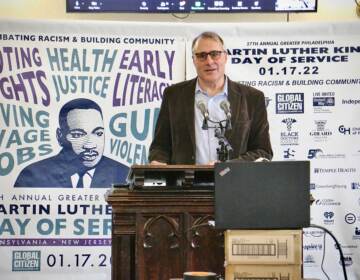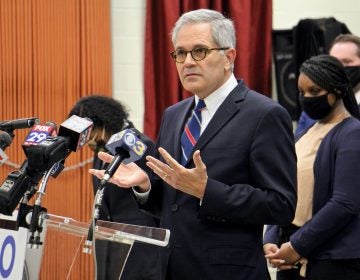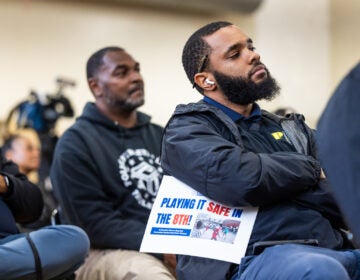Philly looks to expand initiative offering support to potential shooters before they pick up a gun
The goal of Group Violence Intervention is to offer support, such as job placement and training, to stop participants from picking up a gun.
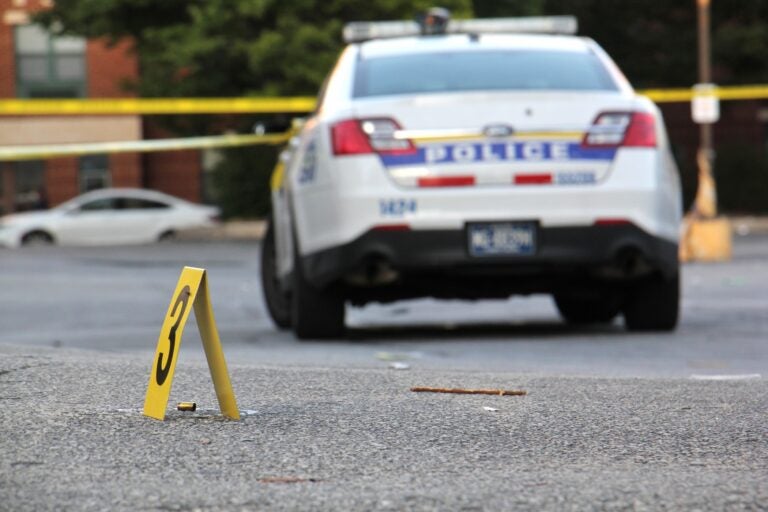
(Emma Lee/WHYY)
Despite the ongoing pandemic, Philadelphia officials said they are trying to expand one of their key gun violence prevention programs.
It’s called Group Violence Intervention or GVI, and the goal is to offer support to people who could pull the trigger to keep them from doing so.
Because large group meetings were prohibited, Philadelphia officials running the GVI program had to tweak the strategy. Since August 2020, those meetings between potential shooters and police, community leaders, and social service providers have mostly been taking place through conference calls or “mobile call-ins.”
“We deliver this basic message to our young people that gun violence is wrong, and it must stop, but it does not end there,” said Deion Sumpter, who is charged with implementing the meeting strategy. “My team and I do our best with persistent follow-up calls, home visits, and we push as hard as we can to take up the offer of help and ultimately try something different.”
That something different includes job training and employment, which can be difficult for some young people who have never worked a normal schedule and worry about rejection.
According to a progress report on the program as of December 2021, the city has identified 598 people for the call-in groups. Of those who accepted services, all of them were Black and ranged in age from 14 to 38. The city said 147 people were receiving case management as of December.
Officials are working to expand the program to two more police districts in the east and northwest, so it will cover all of the city.
“It’s based on the widely known premise that the majority of victims and perpetrators of gun violence, approximately 60% or more, are part of a tiny, interconnected part of the population,” said Evangelina Manos with Philadelphia’s Managing Director’s Office. “About half of one percent who are often part of a neighborhood group connected to the geographic area where shootings take place.”
Manos said this small group is unlikely to come forward to law enforcement if they themselves become crime victims.
“We also know and have seen that shootings are like an infection spreading because of group members’ propensity to retaliate when they or their fellow members are shot,” she said. “As a result, a single shooting can generate, as we’ve seen, as many as five or more related shootings in recent years.”
Sumpter said help getting jobs is by far the most requested support service among GVI participants. He said the program is able to offer people immediate employment through its partnership with the Center for Employment Opportunity (CEO), which provides workforce training and job placement.
“Candidates are assigned to the GVI work crew and will then be placed at a CEO work site,” he said. “After candidates complete the training, they successfully transition to full time employment.”
The connection to workforce training can happen as quickly as the next business day, said Sumpter, and the participants receive a $100 gift card just for showing up to orientation. According to the city 89 people have been referred to employment services as of December.
However, it’s not easy getting people to participate.
Sumpter spoke of one person who understood the group’s message that crime and violence wasn’t the way to live, but he missed three orientation appointments for job training. The reason? He was afraid of going out into the workforce. Sumpter said he personally went to the person’s house and stayed on the phone with him through the orientation. After the man successfully completed orientation and got a job, he in turn referred three others to the program.
So far, Sumpter said the program is seeing a 60% retention rate for participants.
Cherie Ryans’ son and best friend were murdered more than 30 years ago while leaving a movie theater in Philadelphia. Ryans said she participates in GVI to fulfill a vow she made over 30 years ago: to find a way to help would-be perpetrators from doing something that could hurt or kill another person. Ryans said she has trust in the program because it’s changing lives.
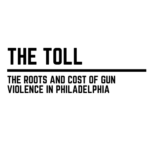 This article is part of The Toll: The Roots and Costs of Gun Violence in Philadelphia, a solutions-focused series from the collaborative reporting project Broke in Philly. You can find other stories in the series here and follow us on Twitter at @BrokeInPhilly.
This article is part of The Toll: The Roots and Costs of Gun Violence in Philadelphia, a solutions-focused series from the collaborative reporting project Broke in Philly. You can find other stories in the series here and follow us on Twitter at @BrokeInPhilly.

Saturdays just got more interesting.
WHYY is your source for fact-based, in-depth journalism and information. As a nonprofit organization, we rely on financial support from readers like you. Please give today.



